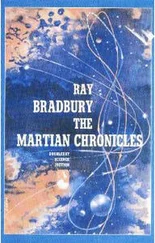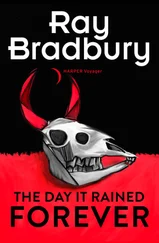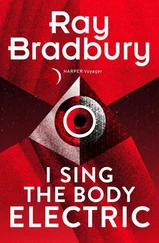Ray Bradbury - Quicker than the eye
Здесь есть возможность читать онлайн «Ray Bradbury - Quicker than the eye» весь текст электронной книги совершенно бесплатно (целиком полную версию без сокращений). В некоторых случаях можно слушать аудио, скачать через торрент в формате fb2 и присутствует краткое содержание. Жанр: Фантастика и фэнтези, на английском языке. Описание произведения, (предисловие) а так же отзывы посетителей доступны на портале библиотеки ЛибКат.
- Название:Quicker than the eye
- Автор:
- Жанр:
- Год:неизвестен
- ISBN:нет данных
- Рейтинг книги:4 / 5. Голосов: 1
-
Избранное:Добавить в избранное
- Отзывы:
-
Ваша оценка:
- 80
- 1
- 2
- 3
- 4
- 5
Quicker than the eye: краткое содержание, описание и аннотация
Предлагаем к чтению аннотацию, описание, краткое содержание или предисловие (зависит от того, что написал сам автор книги «Quicker than the eye»). Если вы не нашли необходимую информацию о книге — напишите в комментариях, мы постараемся отыскать её.
Quicker than the eye — читать онлайн бесплатно полную книгу (весь текст) целиком
Ниже представлен текст книги, разбитый по страницам. Система сохранения места последней прочитанной страницы, позволяет с удобством читать онлайн бесплатно книгу «Quicker than the eye», без необходимости каждый раз заново искать на чём Вы остановились. Поставьте закладку, и сможете в любой момент перейти на страницу, на которой закончили чтение.
Интервал:
Закладка:
Then he locked the truck in the garage and went to stand on the back porch, thinking, I won't need water. The storm will soak the ground.
He stood for a long while simply staring at the graveyard mulch, waiting for rain, until he thought, what am I waiting for? Jesus! And went in.
At ten o'clock a light rain tapped on the windows and sifted over the dark garden. At eleven it rained so steadily that the gutter drains swallowed and rattled.
At midnight the rain grew heavy. He looked to see if it was eroding the new dark earth but saw only the black muck drinking the downpour like a great black sponge, lit by distant flares of lightning.
Then, at one in the morning, the greatest Niagara of all shuddered the house, rinsed the windows to blindness, and shook the lights.
And then, abruptly, the downpour, the immense Niagara ceased, followed by one great downfell blow of lightning which plowed and pinioned the dark earth close by, near, outside, with explosions of light as if ten thousand flashbulbs had been fired off. Then darkness fell in curtains of thunder, cracking, breaking the bones.
In bed, wishing for the merest dog to hold for lack of human company, hugging the sheets, burying his head, then rising full to the silent air, the dark air, the storm gone, the rain shut, and a silence that spread in whispers as the last drench melted into the trembling soil.
He shuddered and then shivered and then hugged himself to stop the shivering of his cold flesh, and he was thirsty but could not make himself move to find the kitchen and drink water, milk, leftover wine, anything. He lay back, dry-mouthed, with unreasonable tears filling his eyes.
Free dirt, he thought. My God, what a damn-fool night. Free dirt!
At two o'clock he heard his wristwatch ticking softly.
At two-thirty he felt his pulse in his wrists and ankles and neck and then in his temples and inside his head.
The entire house leaned into the wind, listening.
Outside in the still night, the wind failed and the yard lay soaked and waiting.
And at last … yes. He opened his eyes and turned his head toward the shaded window.
He held his breath. what? Yes? Yes? What?
Beyond the window, beyond the wall, beyond the house, outside somewhere, a whisper, a murmur, growing louder and louder. Grass growing? Blossoms opening? Soil shifting, crumbling?
A great whisper, a mix of shadows and shades. Something rising. Something moving.
Ice froze beneath his skin. His heart ceased.
Outside in the dark, in the yard.
Autumn had arrived.
October was there.
His garden gave him …
A harvest
Last Rites
1994 year
Harrison Cooper was not that old, only thirty-nine, touching at the warm rim of forty rather than the cold rim of thirty, which makes a great difference in temperature and attitude. He was a genius verging on the brilliant, unmarried, unengaged, with no children that he could honestly claim, so having nothing much else to do, woke one morning in the summer of 1999, weeping.
«Why!?»
Out of bed, he faced his mirror to watch the tears, examine his sadness, trace the woe. Like a child, curious after emotion, he charted his own map, found no capital city of despair, but only a vast and empty expanse of sorrow, and went to shave.
Which didn't help, for Harrison Cooper had stumbled on some secret supply of melancholy that, even as he shaved, spilled in rivulets down his soaped cheeks.
«Great God,» he cried. «I'm at a funeral, but who's dead?!»
He ate his breakfast toast somewhat soggier than usual and plunged off to his laboratory to see if gazing at his Time Traveler would solve the mystery of eyes that shed rain while the rest of him stood fair.
Time Traveler? All, yes.
For Harrison Cooper had spent the better part of his third decade wiring circuitries of impossible pasts and as yet untouchable futures. Most men philosophize in their as-beautiful-as-women cars. Harrison Cooper chose to dream and knock together from pure air and electric thunderclaps what he called his Mobius Machine.
He had told his friends, with wine-colored nonchalance, that he was taking a future strip and a past strip, giving them a now half twist, so they looped on a single plane. Like those figure-eight ribbons, cut and pasted by that dear mathematician A. F. Mobius in the nineteenth century.
«Ah, yes, Mobius,» friends murmured.
What they really meant was, «Ah, no. Good night.»
Harrison Cooper was not a mad scientist, but he was irretrievably boring. Knowing this, he had retreated to finish the Mobius Machine. Now, this strange morning, with cold rain streaming from his eyes, he stood staring at the damned contraption, bewildered that he was not dancing about with Creation's joy.
He was interrupted by the ringing of the laboratory doorbell and opened the door to find one of those rare people, a real Western Union delivery boy on a real bike. He signed for the telegram and was about to shut the door when he saw the lad staring fixedly at the Mobius Machine.
«What,» exclaimed the boy, eyes wide, «is that?»
Harrison Cooper stood aside and let the boy wander in a great circle around his Machine, his eyes dancing up, over, and around the immense circling figure eight of shining copper, brass, and silver.
«Sure!» cried the boy at last, beaming. «A Time Machine!»
''Bull's-eye!''
«When do you leave?» said the boy. «Where will you go to meet which person where? Alexander? Caesar? Napoleon! Hitler?!»
«No, no!»
The boy exploded his list. «Lincoln-«
«More like it.»
«General Grant! Roosevelt! Benjamin Franklin?»
«Franklin, yes!»
«Aren't you lucky?»
«Am I?» Stunned, Harrison Cooper found himself nodding. «Yes, by God, and suddenly-«
Suddenly he knew why he had wept at dawn. He grabbed the young lad's hand. «Much thanks. You're a catalyst-«
«Cat-?»
«A Rorschach test-making me draw my own list-now gently, swiftly-out! No offense.»
The door slammed. He ran for his library phone, punched numbers, waited, scanning the thousand books on the shelves.
«Yes, yes, he murmured, his eyes flicking over the gorgeous sun-bright titles. «Some of you. Two, three, maybe four. Hello! Sam? Samuel! Can you get here in five minutes, make it three? Dire emergency. Come!»
He slammed the phone, swiveled to reach out and touch.
«Shakespeare,» he murmured. «Willy-William, will it be-you?»
The laboratory door opened and Sam/Samuel stuck his head in and froze.
For there, seated in the midst of his great Mobius figure eight, leather jacket and boots shined, picnic lunch packed, was Harrison Cooper, arms flexed, elbows out, fingers alert to the computer controls.
«Where's your Lindbergh cap and goggles?» asked Samuel.
Harrison Cooper dug them out, put them on, smirking. «Raise the Titanic; then sink it!» Samuel strode to the lovely machine to confront its rather outre' occupant. «Well, Cooper, what?» he cried.
«I woke this morning in tears.»
«Sure. I read the phone book aloud last night. That did it!»
«No. You read me these!»
Cooper handed the books over.
«Sure! We gabbed till three, drunk as owls on English Lit!''
«To give me tears for answers!»
«To what?»
«To their loss. To the fact that they died unknown, unrecognized; to the grim fact that some were only truly recognized, republished, raved over from 1920 on!»
«Cut the cackle and move the buns,» said Samuel. «Did you call to sermonize or ask advice?»
Harrison Cooper leaped from his machine and elbowed Samuel into the library.
Читать дальшеИнтервал:
Закладка:
Похожие книги на «Quicker than the eye»
Представляем Вашему вниманию похожие книги на «Quicker than the eye» списком для выбора. Мы отобрали схожую по названию и смыслу литературу в надежде предоставить читателям больше вариантов отыскать новые, интересные, ещё непрочитанные произведения.
Обсуждение, отзывы о книге «Quicker than the eye» и просто собственные мнения читателей. Оставьте ваши комментарии, напишите, что Вы думаете о произведении, его смысле или главных героях. Укажите что конкретно понравилось, а что нет, и почему Вы так считаете.








